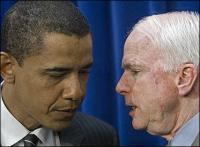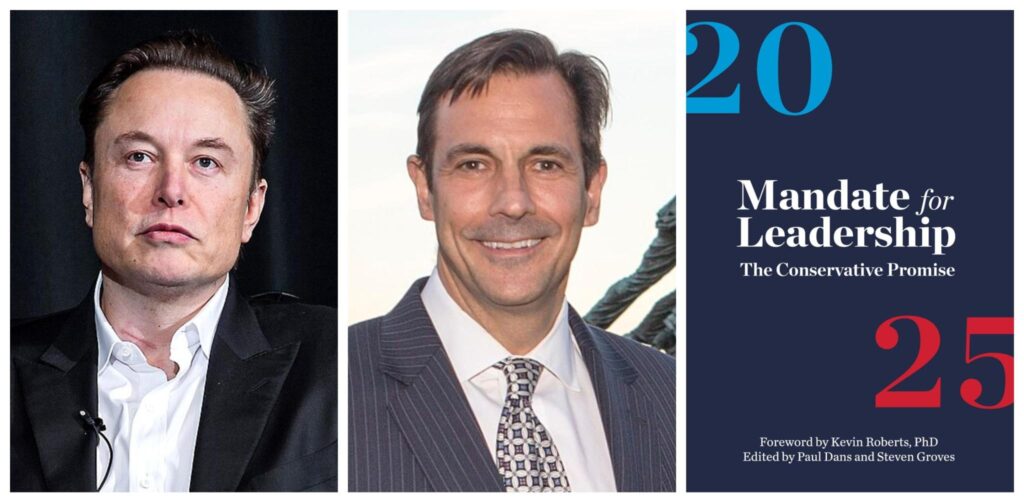In what proved to be a doozy of a debate – not so much for its substance as for its theatrics and sound bites (who will ever forget “Joe the Plumber”?) – the topic of climate change was again sadly, though not surprisingly, missing in action. With the discussion once again focused mostly on domestic issues – the economy and healthcare looming large – the candidates spent most of the time pummeling each other on taxes, trade policies and education.
Mercifully, moderator Bob Schieffer, a CBS News anchor, mostly managed to avoid inserting himself into the debate, save for occasionally pressing a candidate on a particular question (though I noticeably winced when he said the words “climate control”).
When the time finally came to discuss everybody’s favorite climate change stand-in – energy policy – the candidates had already had several heated exchanges about ACORN (Association of Community Organizations for Reform Now), the voting rights group McCain (ludicrously) deemed guilty of perpetrating “one of the greatest frauds in voter history in this country,” Joe the Plumber’s tax woes and William Ayres, Obama’s terrorist BFF (if you believe McCain) and the founder of the radical 1960s organization, the Weather Underground.
Predictably, McCain rattled off his usual set of bromides – nuclear power, clean coal technology and offshore drilling – before launching into a full-throated embrace of free trade (don’t ask why). Building 45 new nuclear reactors by 2030 would help eliminate U.S. dependence on foreign oil and create “millions” of new jobs, he said, as would investing in renewable technologies – all part of his “all of the above” approach to energy. (As I’ve written before, this type of rhetoric doesn’t exactly match his past record.) He called Obama’s more cautious endorsement of “safe” nuclear power naïve, linking the Democratic candidate’s position to that taken by “extreme environmentalists.”
Obama, for his part, called energy independence one of his “top priorities” before plunging into his own set of talking points, once again touting the merits of his 10-year $150 billion clean energy investment plan as an engine for growth and innovation – with the potential to create five million new green-collar jobs – while acknowledging the need for more domestic offshore drilling. However, he was quick to stress that the United States would not be able to drill its way out of the problem. He also reiterated his support for clean coal, using it as evidence that he did not hew to knee-jerk environmental views. Like McCain, Obama did not specify a target for foreign oil import reduction during his first term, though he did say he thought the United States could become energy independent within 10 years.
As in previous debates, both candidates were frustratingly nonspecific in describing how they would tackle climate change, allowing the topic of energy independence to dominate the conversation. No doubt the dismal economic picture contributed to this vagueness, with neither candidate especially eager to discuss the specifics of his cap-and-trade program. Instead, both have sought to frame the climate debate in terms of green jobs and energy independence – measures intended to improve energy-efficiency and reduce greenhouse gas emissions – as sops to voters more interested in their pocketbooks than in global warming or ocean acidification. Eric Pooley, a Shorenstein fellow at Harvard’s Kennedy School of Government, has cleverly called Obama’s approach a “Trojan horse” policy: a climate policy “hidden inside an energy-and-economic policy.”
Alongside Van Jones of Green For All, a grassroots-based organization that aims to make the “green collar economy” part of the national debate, and other like-minded policy wonks, Pooley argues that Obama needs to propel the climate change issue forward with a positive message about the economic benefits of his climate policy. While some of the estimates of jobs created, which range from less than 2 million to 5 million, may be overly optimistic, wrapping this green economy talk around a broader dissection of the risks of climate change is the most effective strategy for Obama to reach otherwise environmentally apathetic voters. Because McCain has dropped the ball on this issue, it gives Obama yet another tool in his arsenal of economic relief measures with which to stress both his environmentally friendly and middle-class friendly bona fides, Pooley says.
In the end, of course, this is an imperfect solution. To really effect change – to get Americans to understand and appreciate the risks posed by climate change – the next president, be it McCain or Obama, will need to do much more to impress upon the public the need to conserve resources and reduce emissions to forestall a looming climate crisis. It remains to be seen how the rolling credit crunch will affect the candidates’ priorities; the fear held by many environmentalists and green-minded thinkers is that a severe, protracted recession will put a serious damper on existing emission-reduction initiatives, delaying crucial action on climate change.
The candidates would do well to heed the call to action made by Britain’s new Climate Change and Energy Secretary Ed Miliband, who recently upped the government’s emission-cutting target from an already ambitious 60 percent to 80 percent by mid-century (incidentally, the same target that Obama has called for) – arguing that the current economic crisis was no excuse to “row back” on the country’s green initiatives. Refreshingly, Britain’s other two major parties, the Liberal Democrats and Conservatives, were quick to endorse Miliband’s proposal. (Can you imagine the Republicans embracing a similar Democratic proposal?) A Lib Dem official even criticized the plan for not going far enough because the 80 percent target does not include aviation or shipping. Lord Adair Turner, chairman of the Financial Services Authority, believes the new target could be met at a cost of roughly 1 – 2 percent of GDP in 2050, a “feasible” objective.
Now that’s change we can believe in.
Subscribe to our newsletter
Stay up to date with DeSmog news and alerts







